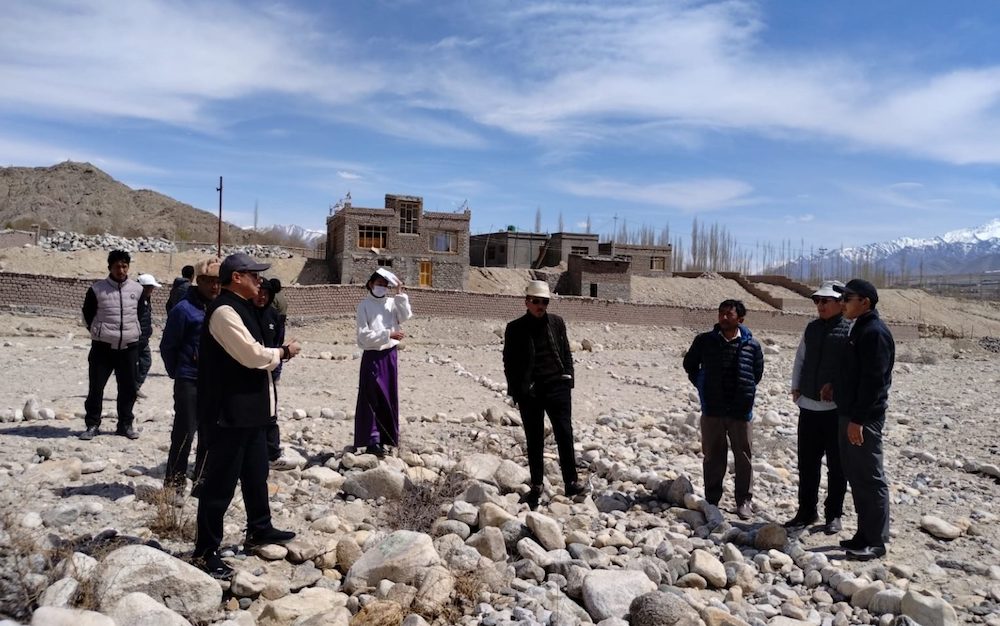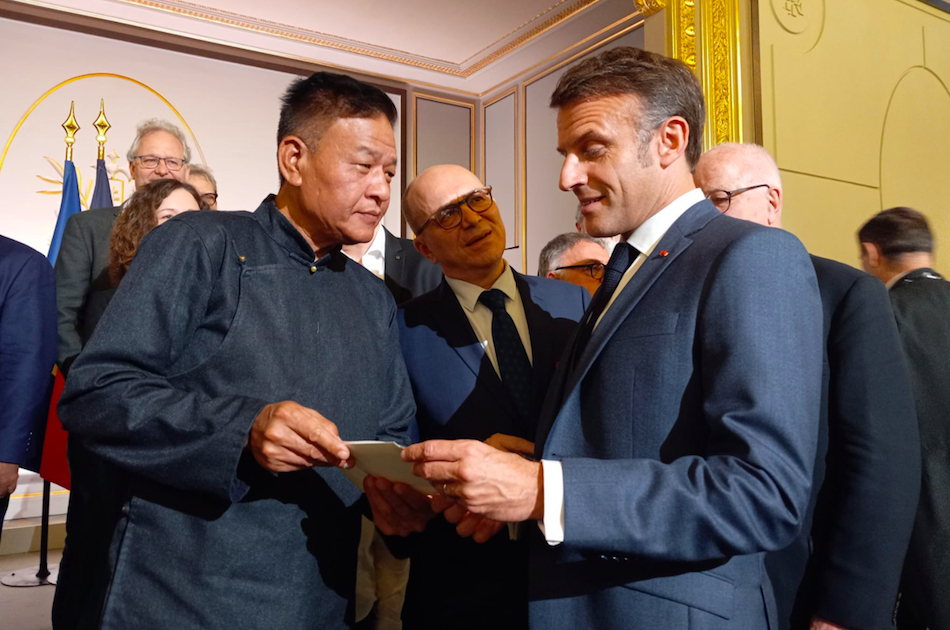By Mario Cacciottolo
 A Tibetan monk wandering down the gothic corridors of the Houses of Parliament is not a sight that one sees too often.
A Tibetan monk wandering down the gothic corridors of the Houses of Parliament is not a sight that one sees too often.
But for three days this week, six members of the Tibetan Parliament in exile – one of whom is a monk – will be spending time at Westminster as part of a trip to learn how to run a government.
The Tibetans, who have their government in the town of McLeod Ganj in Dharamsala, India, are keen to pick up tips on how best to form policy and introduce laws.
This is tricky when you are not actually in the country you are trying to form a government for, and your citizens are scattered across the globe – the situation for the Tibetan Parliament in exile.
Nevertheless, the six Tibetan MPs are on a three day fact-finding mission to learn about select committees, the House of Lords, and why MPs stand up to speak in the House of Commons.
The six MPs, plus two representatives of the Tibetan overseas community, convene for a meeting at Portcullis House, which overlooks Parliament where the group has already been given an overview on select committees.
They file neatly into the Thatcher Room to meet Liam Laurence Smyth, clerk of the Overseas Office at the House of Commons.
After two translators are accommodated, and under the beady eye of a portrait of the Baroness, Mr Smyth explains the structure of parliament and electoral system.
Question and answers
Then it is time for Gordon Brown’s first question time as prime minister.
The MPs are excited at the sight of the House of Commons, especially when Mr Smyth points out where he sits “normally wearing a wig and a gown”.
The Tibetans seem to enjoy the verbal sparring between the prime minister and Conservative leader David Cameron, especially when Mr Brown reminds his opposite number he has “only been running the country for five days”.
After the half-hour session the Tibetan MPs ask questions of their own – Venerable Yundrung Gyaltsen is keen to know if the folder Mr Brown is holding is the nation’s constitution.
It is explained it is actually a brief provided by civil servants so he can have facts and figures to hand.
Afterwards the group meet MPs, where Dolma Tsering, who has been a teacher for 26 years, explains the reasoning behind the group’s trip.
 “Ours is a different set-up to the British one, but there’s many things we can learn. This is one of the oldest democracies in the world and we have the opportunity to see things like the questions and the prime minister answering.
“Ours is a different set-up to the British one, but there’s many things we can learn. This is one of the oldest democracies in the world and we have the opportunity to see things like the questions and the prime minister answering.
“Also, we’re getting to meet MPs and talk to them about issues in Tibet,” he said.
Mrs Tsering also explains the Tibetan Parliament in exile does not contain any political parties, removing any opportunity for amusing sparring between governments and their opposition.
It is, however, still a democracy, with 43 elected MPs and up to a further three who can be chosen by the Dalai Lama.
The MPs, she says, provide opposition and support to the heads of the Tibetan parliament, as and when deemed necessary.
Individual interests
Pema Jungney explains because the Tibetan government is relatively young – it was formed in 1960 – it has much to learn from older, more established systems.
“There’s so many things to learn because our democracy is very new,” he said.
He was particularly interested by the select committee system.
 “In our government, the speaker and the deputy speaker choose an MP to sit on a committee, but here it’s done according to the interest of the individual.
“In our government, the speaker and the deputy speaker choose an MP to sit on a committee, but here it’s done according to the interest of the individual.
“I’ve visited the parliaments in Belgium, Switzerland, and Italy and have taken much experience from them all.
“I’ve learned many things here, such as the fact that the party with the most elected members has the power to run the country. It is not like that in our system.”
Riki Hyde-Chambers, is chairman of the Tibet Society of the United Kingdom, which has supported the visit of the MPs, along with the UK’s All Party Parliamentary Group for Tibet.
He said the programme focused on the practicalities of parliament, particularly committee work.
“We will be looking at how that can be translated when you have members that live in different parts of the world, as is the case with the Tibetan community.”
And then the Tibetans were back off across the road, braving the unseasonable rain, to learn more from the “mother of parliaments”.









